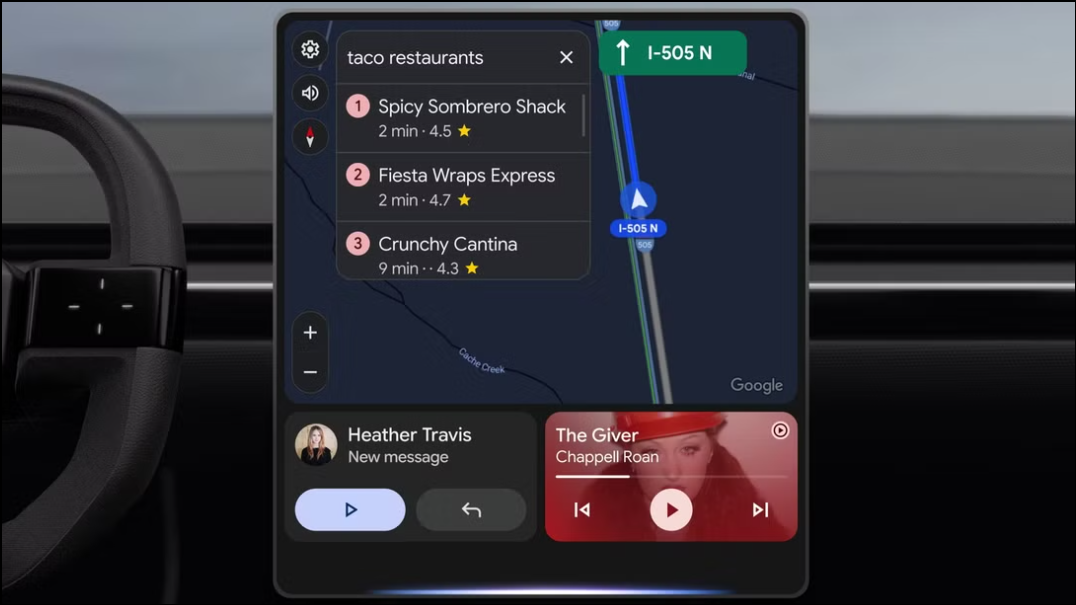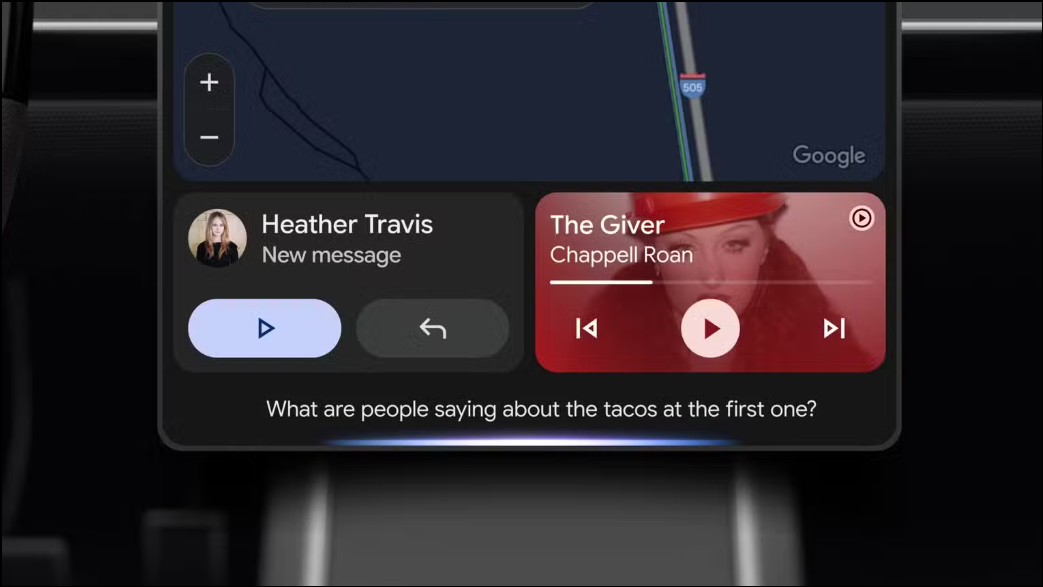Google’s Gemini AI assistant is set to become a fixture in cars running Android Auto, marking a major shift in how drivers interact with their infotainment systems. With this update, Gemini will replace Google Assistant as the primary voice interface, bringing a more conversational approach to common driving tasks like messaging, navigation, and music control. The rollout will reach Android Auto users in the coming months, followed by vehicles with Google’s built-in operating system before the end of the year.
Using Gemini for Smarter, Hands-Free Driving
Natural language processing in Gemini means drivers no longer need to remember rigid voice command structures. Instead of carefully phrased prompts, you can speak to Gemini as you would to a passenger. For example, saying “Find a charging station near the post office that also has a park nearby.” prompts Gemini to search multiple data sources and offer practical, context-aware suggestions. This approach minimizes the need for repeated or corrected commands, letting drivers stay focused on the road.
Gemini also improves routine tasks. Sending messages becomes more flexible: you can ask Gemini to always reply to a specific contact in their preferred language, and it will remember your preference for future conversations. When you dictate a message, Gemini can translate it into more than 40 languages before sending. If you receive a long text while driving, Gemini can summarize it, helping you process information quickly without distraction.
For entertainment, Gemini supports commands across apps like Spotify and YouTube Music, and can pull up personalized playlists or podcasts. If you need directions, Gemini can reference your Google Calendar, Gmail, or Maps history to locate destinations, even if the address is buried in an old email.

Gemini Live: Always-On Conversations
Gemini Live introduces a continuous, always-listening mode that supports ongoing, multi-step conversations. Activating it with “Hey Google, let’s talk” allows you to brainstorm, plan, or ask open-ended questions while driving. For example, you can discuss meeting strategies, request summaries of news stories (excluding specific topics), or even get a quick synopsis of a book before a book club gathering. This persistent conversational ability aims to reduce the cognitive load associated with managing multiple tasks while driving.

Visual and Contextual Limitations
While Gemini’s conversational abilities represent a significant upgrade, early tests show some limitations. When asked for location-based recommendations—like nearby restaurants—Gemini can list options but may not always display them on the map interface. This means drivers might still need to glance at their phone or car display to see visual cues. The AI’s responses can also be generic if it lacks real-time location data or context from the vehicle’s sensors. Google is aware of these gaps and is working with automakers to support more on-device processing in the future, which could improve response times and reliability, especially when cellular connectivity is inconsistent.
Expanded App Support and Digital Car Keys
Alongside Gemini, Google is expanding the Android Auto app catalog to include new categories like games and video, which can be accessed while parked or charging an EV. Digital car key functionality is also reaching more brands, including Audi, Volvo, and Polestar, streamlining the process of unlocking and starting vehicles directly from your phone. These additions aim to make the overall driving experience more productive and enjoyable, especially during downtime.
Privacy, Data, and User Control
Integrating an AI assistant into the car raises questions about privacy and data collection. Some users express concerns about how much data Gemini will access or store, especially given the sensitive nature of location and communication data. Currently, Gemini processes most requests via Google’s cloud servers, but Google is collaborating with automakers to eventually support more on-device AI processing. This shift could strengthen privacy protections by keeping more data within the vehicle’s ecosystem rather than transmitting it to external servers.
Importantly, Google intends to offer users control over how Gemini operates. Many hope for options to switch between Gemini and the legacy Google Assistant, or to disable the assistant altogether. The company has not finalized all settings, but feedback from early adopters and the broader Android community will likely influence the final rollout.
Gemini’s arrival on Android Auto signals a step forward for in-car voice controls, making them more flexible and context-aware. While some features are still evolving, drivers can expect a more natural, productive, and personalized experience behind the wheel as Google’s AI continues to mature.

